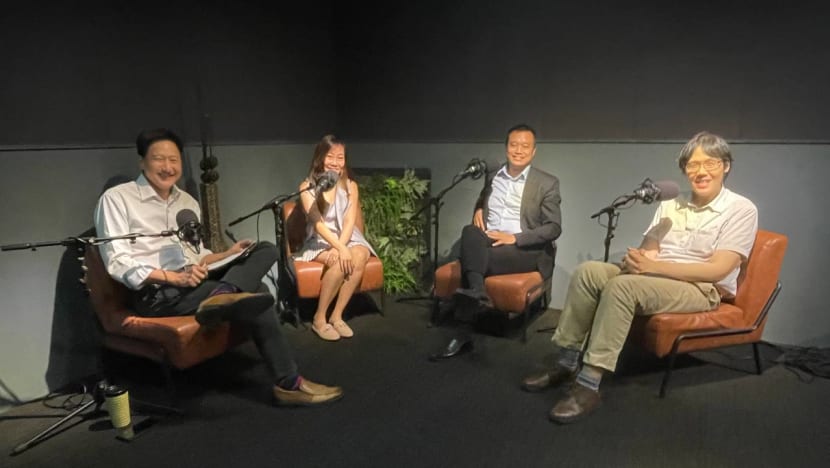Heart of the Matter: What Budget 2023 meant for lower- and middle-income earners
The purpose of this year’s Budget is to rebalance Singapore society and ensure that more benefits flow to those who will be hit hardest by inflationary pressures, says one guest on the Heart of the Matter podcast.

SINGAPORE: The annual Budget announcement by Deputy Prime Minister and Finance Minister Lawrence Wong was keenly anticipated because people wanted to see what goodies would be dished out. Yes, there was some of that, in terms of GST vouchers and cash payouts for many. But the underlying theme was clear: To rebalance resources from the haves to the have-nots in Singapore.
CNA's Steven Chia sat down with entrepreneur and mother of two, Dawn Cher, associate professor Walter Theseira and Kurt Wee, president of the Association of Small and Medium Enterprises, on this episode of the Heart of the Matter podcast.
Here are some of the highlights from the discussion.
On larger handouts to deal with inflation and the cost of living:
Walter Theseira: “(High inflation) hurts lower-income Singaporeans the most because even before high inflation hit, they were already living quite close to the edge of their budgets, they were just barely covering their expenses. The Budget was aimed at giving them the assurance and giving them the handouts necessary to tide over this period of inflation. But for higher-income consumers, it's not going to do that.’’
Changes to Working Mother's Child Relief:
Dawn Cher: “It's no longer surprising to see women earning more than the men. So, this new change to go towards a fixed amount instead of a percentage (on the Working Mother's Child Relief), disadvantages high-income mums.”
Walter Theseira: “The purpose of rebalancing all of this, I think, has been to try to ensure that more of the benefits flow to more like the middle-income taxpaying women.”
On doubling of paternity leave, larger sums for Baby Bonus and child development accounts
Dawn Cher : “I'm not going to have any (more) kids. Really, it doesn't make a difference (to me). But I can see how it really helps a lot of people. Increasing (the Baby Bonus) by S$3,000 ... that's a really big amount to give to every single child.”
Kurt Wee: “People don't have babies every year. I think it's still manageable (for businesses). SME bosses ... have to make some of these accommodations, especially in times when the labour market is very tight. Running an enterprise today is not just about profit ... businesses have to play a role, especially in a country where we don't have many natural resources.”
Walter Theseira: “Ultimately, there's this broader issue ... Do people feel that having children is worthwhile in Singapore? That is quite a complex issue, because one of the big things people bring up is societal stress, competitiveness.”
It really goes down to the way Singaporeans think about what a good life for their children is and you can't subsidise your way out of that.
On funds given to companies and businesses to innovate, invest in skills and training
Kurt Wee: “If you look at the Budget, it looks like a lot of funds and handouts (are given) to companies. But in reality, a lot of it is tied back to fundamentals of stimulating good employment. Companies shouldn't build a business around government schemes. When there's a scheme to support certain facets, that's good, then there's a trampoline effect.”
You really have to focus on a good business plan, good execution and really grow a good enterprise.
Walter Theseira: “(The Jobs Skills Integrators) is quite an important initiative. What you really want to do is find those workers who are maybe underemployed, on the edge of being retrenched, or they're currently out of a job, and you want to find the best fit for them. Because there's an employer out there who really needs their skills, or maybe with a bit of retraining, you can use them very profitably.”
On how the Budget helps the lower- and middle-income
Walter Theseira: "Many Singaporeans, the more fortunate of us, will be asked to pay a bit more over the next couple of years for increased social support. We need to agree as a society, that it is worth it to spend more of our money to uplift the less fortunate."
Dawn Cher: "What I took away from this Budget is that there's a lot more given to help the low-income and middle-income (citizens). A lot of the complaints typically come from people who don't get these benefits, but it's precisely because you don't need these benefits that you're not getting them."
For the full conversation on what Budget 2023 means for families, businesses and the future, listen to the podcast.














